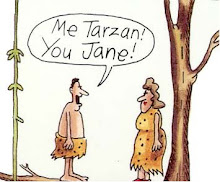1) UBS
Group net loss attributable to UBS shareholders of
CHF 19,697 million for full-year 2008, due primarily to losses on risk positions in the Investment Bank.
2) BNP
French banking giant BNP Paribas said Thursday it sustained 1.366-billion-euro (1.7-billion-dollar) fourth quarter loss and a 61.5 percent slide in annual net earnings last year. The results -- which come amid uncertainty over BNP's bid to take over the Belgian assets of Fortis bank -- were in line with expectations, with much of the setback coming in the fourth quarter as the financial crisis bit.
Full-year 2008 profit fell to 3.0 billion euros from a record 7.8 billion in 2007.
3)Citi
Citigroup, Inc. (C) reported a net loss of $8.29 billion for the fourth quarter of fiscal 2008 and said it will realign its businesses into two, Citicorp and Citi Holdings, for future profitable growth. The bank also said that it has reached an agreement with the U.S. Government on the loss sharing program.
Citi reported
fiscal 2008 net loss of $18.72 billion, or $3.88 per share, compared with a profit of $3.62 billion, or $0.72 per share a year ago. Full-year revenues fell 33% to $52.79 billion from $78.5 billion in fiscal 2007.
4) OCBC
OCBC Bank has posted a worse-than-expected 30 per cent decline in fourth quarter net earnings. Net profit for the three months ended December came in at S$301 million, down from S$428 million a year earlier. The drop was due to lower contributions from its insurance arm and higher provisions for bad debt amid the economic downturn. The bank's
full-year net profit was down 16 per cent at S$1.7 billion.
5) DBS
DBS Group Holdings, Southeast Asia's biggest bank by assets, said Friday that fourth-quarter net profit fell 40 per cent compared with a year earlier as weak financial markets hit income. The one-time items included a S$45-million charge for "restructuring". In November, the bank announced it was cutting 900 staff to trim costs during the global credit crisis. DBS also took a S$47-million impairment charge for its investment in TMB Bank of Thailand, but gained S$4 million from the sale of Hong Kong properties.
Full-year net profit, including one-time items, was S$1.93 billion, down 15 per cent from the previous year on total income of S$6.03 billion, two per cent less than a year ago.
6) JPM Chase
For the 4th quarter the bank made $702m net income, down substantially from the $3bn made during the corresponding period in 2007. Earnings per share in Q4 fell from $0.86 to $0.07.
Across the whole year the bank made $5.6bn net income, or $1.37 per share, which marked a drop of 64% from 2007’s figures. CEO Jamie Dimon has described the Q4 results as very disappointing and largely due to difficulties in investment banking.
7) CS
Credit Suisse Group AG, Switzerland's second-biggest bank, reported a record fourth-quarter loss of 6.02 billion francs ($5.2 billion). For 2008, the deficit totaled 8.2 billion francs. As well as write-downs, the company's investment-banking arm lost money on hedging positions that it said failed to work amid the turmoil that swept financial markets in the final three months of 2008.
8) DB
Deutsche Bank AG confirmed Thursday that a hefty €4.8 billion ($6.1 billion) net loss in the fourth quarter resulted in a shortfall for the full year. It expects global economic weakness to continue posing "significant challenges." Frankfurt-based Deutsche Bank — Germany's largest — said its fourth-quarter net loss compared with a net profit of €1 billion in the fourth quarter of 2007 and was largely because of big trading losses. It also led to a net loss of €3.9 billion for 2008.
9) Soc Gen
FRENCH banking giant Societe Generale on Wednesday reported a net profit for both the fourth quarter of 2008 and the full year despite the devastating financial crisis that has plagued so many lenders elsewhere. The bank said net earnings in the final three months of the year came to 87 million euros (S$168 million), even against the backdrop of the spectacular collapse of US investment bank Lehman Brothers. For 2008 as a whole, Societe Generale said net profit came to
2.0 billion euros compared with 947 million in 2007 when it absorbed a 4.9-billion-euro loss it attributed to unauthorised actions by one of its traders, Jerome Kerviel.
10) GoldmanSachs
New York: Goldman Sachs Group Inc reported its first quarterly loss since going public nine years ago as plunging stock, debt and real estate markets caught up with a Wall Street leader that had sidestepped the worst financial crisis in decades. Goldman posted a net loss of $2.12 billion, or $4.97 a share, for the fourth quarter ended Nov. 28, capping a year that tarnished its Midas touch reputation.
Net earnings for the year decreased 80% to $2.32 billion, from net earnings of $11.6 billion in a year ago period.







